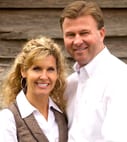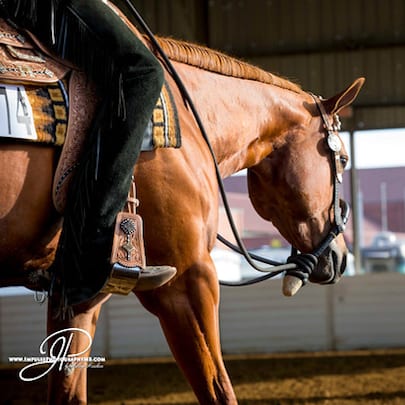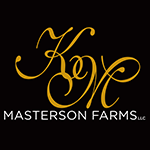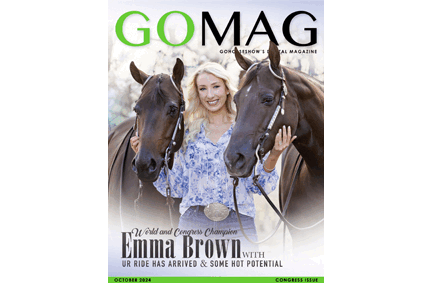For one reason or another, you’ve made the big decision that it’s time to embark on finding a new horse. Whether it’s to help you make the move from Novice, add a new event to your repertoire, or because you sold your old mount, it’s time to start thinking how you can make your shopping experience easier and more enjoyable.
Ruth Ellen, through the Horse Source Inc., has been helping exhibitors find the right “next” horse for approximately 20 years. She points out that one of the most important things that a prospective horse buyer should think about is: Are you sure, if you’re buying the horse of your dreams, can you buy it now?
Seems like a pretty simple answer, but Ellen explains, “Horses change hands, change locations, and sometimes change prices. What’s available today at a given price may not be available in two weeks. Do you have the funds to purchase a new horse now? Do you need to sell your horse before buying a new one?”
Lora Whittington, owner of Whittington Equine Marketing Group, agrees, “If you need to sell a horse and get through grad school before you can purchase your next mount– don’t waste the seller’s time. It is fun to window shop, but asking for additional video is simply unkind.”
In order to know if you’re ready to buy, an important thing to do is to make sure you know your budget. “It’s easy to peruse the internet, but many of horses don’t have prices on them,” says Ellen. “You may have a budget of $25,000 and, unknowingly, you are looking at horses priced at $100,000. It’s the worst thing a buyer can do, in my opinion.”
Ellen explains that it can be easy to get your heart set on a certain horse, only to find out he’s priced much higher than your budget permits. “You have to compare apples to apples,” she continues. “I would hope that the horse listed at $100,000 is far superior to the $25,000 horse. Continually looking at horses beyond your reach, many times, prevents the buyer with a smaller budget from ever finding a horse that suits her. For this reason, the prospective buyer should only look at horses priced reasonably within their budget.”
So, before you set out to contact the seller and set a date for a test ride, be sure to have those three important things in mind: know if you’re ready to buy a horse right now; know what your budget is; and then look in your price range.
Hit the Ground Running
But now you’re ready to buy and you’ve started making your list. As a buyer, you’re in a position to wheel and deal on the horse of your dreams, but you don’t want to alienate any potential trainers, clients, or partners.
“The first question that I ask anyone who calls or messages me asking about a horse on my site is, ‘Do you have a trainer? If so, who is your trainer?’” says Ellen. “If you have a horse trainer, I think one of the biggest mistakes a buyer can make is to buy a horse without your trainer’s blessings. That blessing can be by showing them the video, asking if she/he wants to ride the horse, or asking for their opinion.”
You want to be sure you give yourself plenty of time to see the horse and have a test ride, if that’s what you’re looking for. If you’re traveling, schedule flights or driving so you have more than enough time to spend with the horse and his owners. Have a goal in mind when it comes to the face-to-face meeting. If you have more questions after your initial contact, be sure to have those questions written down so you can remember to ask them while at the test ride. And remember, it’s not only your time invested in the test ride, but the trainer and the owner’s time as well, so showing some common courtesy such as a follow-up email is important.
“If you’ve asked someone to accommodate your specific requests, only to determine the horse is not a good fit, let the seller know and thank them for their time. They will remember you when the right one comes along,” recommends Whittington.
Pre-Purchase Exams
Whether you want to do the pre-purchase exam (PPE) before the test ride or after, it’s an important part of the horse shopping experience, and one that shouldn’t be skipped. “The buyer needs to talk to the vet, herself,” advises Ellen. “When the buyer says I’m going to do a PPE, she needs to speak to the vet who’s doing it and she needs to be the one to say ‘This is what I want done…’ and the vet needs to speak with the buyer either during or after the exam.”
But Whittington warns to not base everything solely on the PPE. “Don’t get too hung up on the results of pre-purchase exam–very few horses vet clean and finding that underlying thing that hasn’t been an issue shouldn’t be an issue,” she says. “I see buyers vet two and three horses, and after $2,400 in exam fees, they come to the realization that unless they’re vetting a yearling, there’s a fair chance something is going to show up.”
Here are some more horse shopping tips from our experts: Ruth Ellen:
Ruth Ellen:
* No question is a dumb question. If you ask a question and the agent or trainer, whoever is representing the horse, doesn’t give you a straightforward answer, it would be time for your red flag to go up.
* If you’re flying to look at a horse, be sure that you’re rested when you get there. Be sure to have enough time (I can’t give you a prescription for how much time that is), but be sure to have enough time to look at the horse, try the horse, ask whatever questions you want to ask, that you aren’t looking at your watch thinking you need to get back to the airport.
* If you don’t have a trainer, then proceed with caution. If you have an idea of, “I’m going to buy a horse and I’m going to put it in training and I have an idea of who my trainer is going to be…” is a delicate rope to walk only because most trainers get along with a certain kind of horse. Most trainers don’t get along with every kind of horse.
* If you look at the price range where you can absolutely not go, you’re never going to find the horse that suits you in the price range that you can afford. So I always tell people that I need to look for horses in their budget, that’s how they find something.

Bret & Candy Parrish:
* Deal with people that you know are looking out for YOUR best interest.
* Do your homework! Make a plan including your goals and set a financial budget.
* Be sure that you and/or your trainer evaluate the prospective horse in person. Videos are great but there is no substitution for trying out a horse and seeing it in person.
* Understand that spending a little more up front in your horse investment can be a wise decision. It costs the same amount to take care of, train, show, etc. a high quality horse as it does a horse of lower quality. Buy the best horse you can for you budget; don’t settle for a horse just because it may be less expensive.

Lora Whittington:
* Ask the right questions. Is it sane, sound and appropriate for your level of expertise and desired show level? Make a comprehensive list of questions before you start your search and modify it as some needs become more relevant and others less so.
* Show some common courtesy. It will not only earn you respect in the industry; those you treat well will support you in the search for your perfect horse. Return calls and messages. If you’ve asked someone to accommodate your specific requests, only to determine the horse is not a good fit, let the seller know and thank them for their time. They will remember you when the right one comes along!
* Don’t get hung up on age – Olympic caliber mounts don’t start getting good until they’re about twelve years old. It is my experience that if a horse is still sound at age 10, there’s no reason to think he won’t be for many years to come. Yes, he may require some maintenance, but if you need a horse with miles, it’s a small price to pay for your safety and success.
* Do the research. Honest sellers will tell you about their horse’s quirks or downsides – be wary of someone who has the perfect horse. Making a few phone calls and internet searches can give you a good feel for a seller’s reputation.
You don’t want to be that shopper—Whittington and Bret and Candy Parrish offer some of their horse shopping pet peeves.
Bret & Candy Parrish:
* Be serious when it comes to shopping. One of the worst things that can happen is when a shopper allows you to put a lot of work and effort into searching for a prospect, but they’re not serious about buying.
* Don’t set tight restrictions, such as a certain color restriction (“My horse has to be bay with four white socks.”). Have an open mind and remember you are wanting to buy the best horse available for your money.
* Don’t set unrealistic expectations—every horse will have his flaw or slight issue, and no horse is perfect.
* Be courteous and professional. Don’t try to go behind the scenes to get a deal done in an unprofessional manner.
* Make a plan and stick with it. Shoppers who change plans in the middle of a search wastes everyone’s time.
Lora Whittington:
* Lately my biggest beef is being asked, “What’s your bottom dollar?” I have to bite my tongue to not say, “Listen, this is a beloved and pampered horse, we’re not looking for the lowest common denominator.” Instead, what I do say is, “My client has established a price and I would not ask her to bid against herself. However, I would be happy to present a reasonable offer.”
* Don’t try to make a substantially lower price offer to make up for plane tickets, the pre-purchase exam, and shipping. If a buyer is not prepared to offer the airline, veterinarian, and shipper a substantially lower price, it is unreasonable to expect the seller to pick up costs requested by the buyer.
* Be ethical! A large percentage of show horses are represented by trainers and agents. These are trust professionals hired by the owners to manage the sale of their horse. Circumventing the listed contact seldom proves beneficial and is often embarrassing.
* Be aware of your reputation as a buyer. You don’t want to be known as, “Katie the Tire Kicker.” We keep track of you in the industry—I’m not kidding. There are people on the internet that have been wasting sellers’ time for years and the professional will not take you seriously.
About the Author: Megan Arszman is a freelance writer based in Lexington, Ky., and has been covering the equine industry for almost 10 years. She’s been lucky enough to work for AQHA and NRHA’s publications, fulfilling a lifelong dream. A former exhibitor herself, she currently contributes to GoHorseShow.com, American Quarter Horse Journal, Paint Horse Journal, Rodeo News, Western Shooting Horse Magazine, and the NRHA Reiner. She is also the Digital Media Content Coordinator for Neogen Corporation’s Animal Safety Division in Lexington, where she lives with her husband and competes in dog agility.








